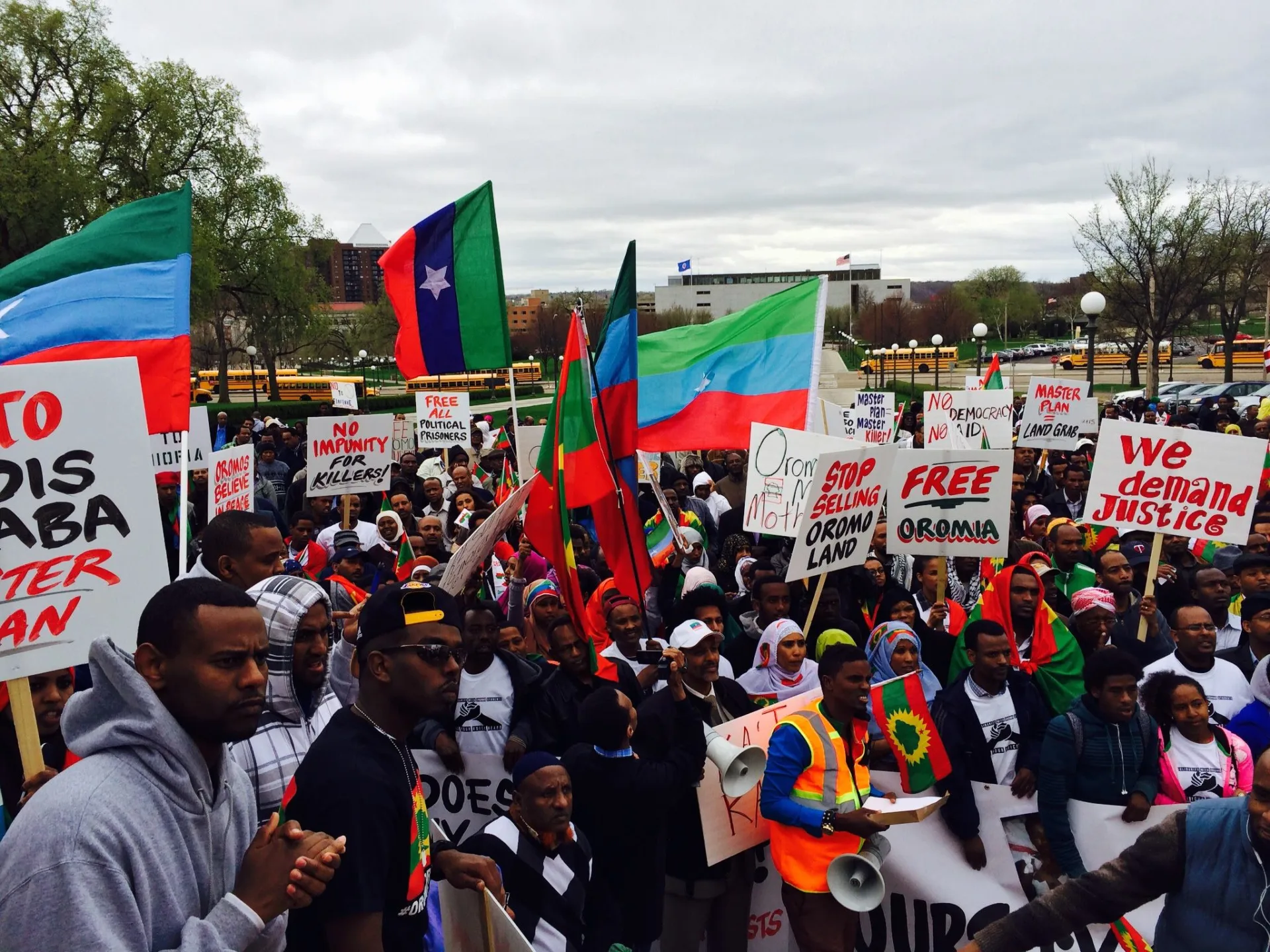|
Getting your Trinity Audio player ready...
|
Can peace, security, and prosperity in the Horn of Africa be achieved while Oromos and Somalis are at odds? Unlikely. The most disastrous times for the Horn of Africa has always come in the backdrop of an Oromo-Somali conflict. Clearly, we cannot be oblivious to the far reaching consequences of the recent Memorandum of Understanding (MoU) signed between Ethiopia and Somaliland on January 1st.
Understandably, the MoU is seen as a threat by Soomaaliweyn advocates who still hold out hope for the ideals of Greater Somalia and as a natural step towards a deserved recognition desired by Somaliland advocates.
The public discourse needs to be tempered with an understanding of the deep bond that exists between Oromos and Somalis, which encompasses shared history, economic interdependence, social and cultural values.
These deep ties are beautifully demonstrated in a folklore narrated to me by a Somali relative which goes, “Samale and Orma were brothers living side by side near a big river inland.” In clear reference to the Oromo tradition that maintains Orma, also called Horo, as common ancestor of Oromos, and the Somali tradition that maintains Samale as a common ancestor of Somalis.
The story continues, “Orma was more established than Samale who, due to young age, was eager to establish his place in the world. One day, Samale encountered a wanderer who told him of a big river that never ends, which piqued his interest. He approached Orma about exploring this never-ending river together, but Orma, while pleased for his brother, declined to accompany him. Orma then blessed Samale and encouraged him to follow his dreams. They split up, never to see each other again, and holding out hope that their children would one day reunite.”
Albeit a mythology, the story resonated with me. As I grew older and went through a formal education which fueled a fascination with my people’s history, I came to know that a number of variations of this myth exist in one form or another across Oromo and Somali folklore.
The story is more valuable today, in the midst of a crisis engineered by political elites that is shortsighted and divorced from traditional knowledge. People-to-people relations between Oromos and Somalis are among the most robust in the Horn of Africa. As highlighted, Somalis and Oromos not only share a political destiny, economic links, social and cultural values; their bond transcends superficial rhetoric and manifests itself in familial ties.
Yes, I am no different from the hundreds of thousands of Oromos who share blood ties with Somalis, and vice versa.
For those of us who have a lot to lose on both sides, the toxic rhetoric that is dominating our social media space, where threats of violence against civilians is normalized, is worrying. Such rhetoric not only goes against the core tenets of Safuu, the Oromo moral code, and Sharaf, the Somali moral code, but also weakens the bond that exists between the two peoples, sow divisions in communities that have long coexisted peacefully, and create animosities that will eventually lead to the outbreak of large-scale violence similar to the one occurred in the 70s or the recent 2016-2017 violence, which killed scores of people and displaced millions.
Needless to say, the recent conflict, like the ongoing tension, was preceded by a rhetoric that was founded on baseless accusations, unjustified criminalization, and outright slander, which was followed by political and military actions that threatened to sever the ties between us and undermine our forefathers’ dreams of one day living in harmony.
It is imperative that we pressure our elites to resolve their political differences in a constructive way and utilize conflict resolution methods that are deeply rooted in both our cultures. Because, if the goal is peace, security and prosperity for the Horn of Africa, none can be achieved when Oromos and Somalis are at odds.
